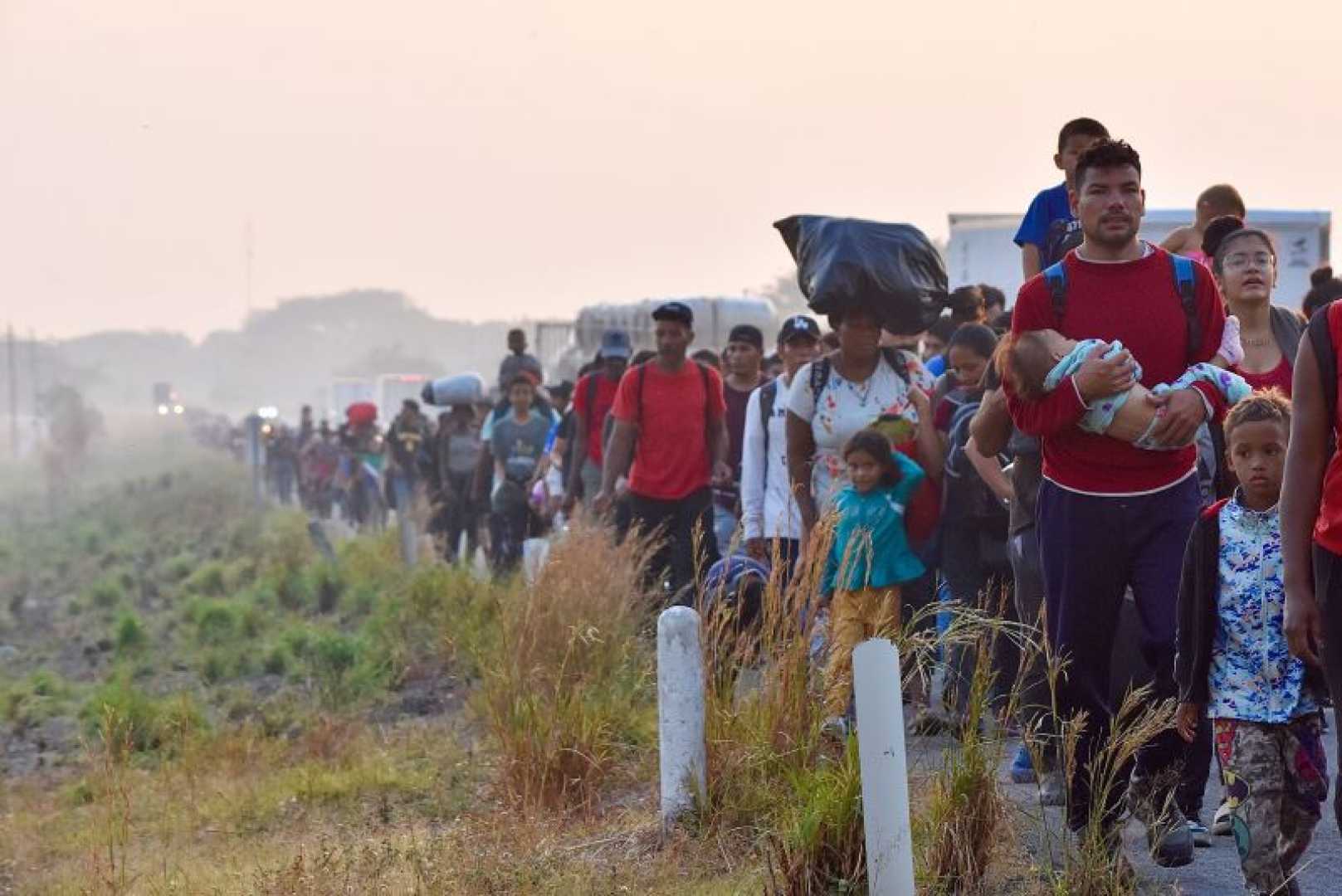World
Mexico Blocks U.S. Deportation Flight, Straining Bilateral Relations

WASHINGTON — Mexico denied a U.S. military plane permission to land on Thursday, temporarily halting the Trump administration’s plans to deport immigrants to the country, according to two U.S. defense officials and a third source familiar with the matter.
Two U.S. Air Force C-17s carrying approximately 80 deportees each successfully flew to Guatemala on Thursday night, but a third flight bound for Mexico was grounded after Mexican authorities refused to grant landing rights. The White House did not respond to requests for comment on the decision.
The move comes amid escalating tensions between the U.S. and Mexico, longtime neighbors and allies, following President Donald Trump‘s re-election in November. Trump has threatened to impose 25% tariffs on Mexican goods in response to the ongoing migrant crisis at the shared border. Mexican President Claudia Sheinbaum‘s administration has publicly opposed Trump’s immigration policies, including the reinstatement of the “Remain in Mexico” program, which requires asylum-seekers to wait in Mexico while their claims are processed.
“It’s really hard to actually institute that program if the Mexican government doesn’t agree,” said Sen. Gary Peters, D-Mich., during a Senate Homeland Security Committee hearing on Thursday. “I don’t think we can take that for granted.”
The blocked flight is part of a broader Trump administration crackdown on illegal immigration, which includes deploying 1,500 additional troops to the U.S.-Mexico border. However, the success of these measures hinges on cooperation from Mexico and other countries of origin, many of which have refused to accept deported migrants.
Sen. James Lankford, R-Okla., highlighted the challenges posed by migrants from countries like China, Tajikistan, and Venezuela, which have been reluctant to repatriate their citizens. “These are recalcitrant countries that are not accepting folks back,” Lankford said during a recent hearing.
In fiscal year 2024, nearly 38,000 Chinese nationals were apprehended by U.S. Border Patrol after crossing the Mexican border illegally, a significant increase from 2,200 in fiscal year 2022. Lankford suggested that international organizations, including ISIS, are exploiting the U.S.-Mexico border route, inspired by the success of drug cartels in smuggling migrants.
Sen. Rick Scott, R-Fla., questioned why Mexico should not bear responsibility for migrants who enter the U.S. after transiting through its territory. “They get into Mexico and then they come to the United States — why shouldn’t that be Mexico’s problem?” Scott said. “You raise their tariffs until they do it.”
The “Remain in Mexico” policy, first implemented in 2018 with the cooperation of former Mexican President Andrés Manuel López Obrador, was expanded after Trump threatened tariffs in 2019. However, the current Mexican government has distanced itself from the program, with officials insisting they were not party to the agreement.
“We don’t have full agreement on this,” said Aaron Reichlin-Melnick, a senior fellow at the American Immigration Council. “We are waiting to hear more from the Trump administration on how the program will come back, who it will be applied to, and when.”
Critics of the policy argue that it exposes migrants to dangers such as exploitation by drug cartels. Adam Isacson, director for defense oversight at The Washington Office on Latin America, testified that the program turns migrants into “sitting ducks for the cartels.”
Despite these concerns, some officials advocate for a tougher approach. Kenneth Cuccinelli, a former Homeland Security official, suggested that Mexico would develop stricter entry policies if the U.S. returned all migrants to its territory. “If people knew they could not get into the United States, they wouldn’t come in the first place,” Cuccinelli said.
The standoff underscores the complexities of U.S.-Mexico relations and the challenges of implementing large-scale immigration reforms without bilateral cooperation.












